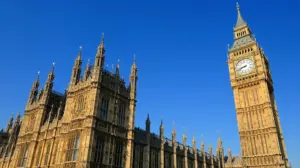31 July, 2020
This morning the news came through that for the next 2 years wills in England and Wales can be witnessed remotely. perhaps, Ireland should follow suit.
News the UK government will allow wills to be witnessed remotely for the next two years in response to the coronavirus pandemic has been cautiously welcomed by the Law Society of England and Wales.
“Currently under the 1837 Wills Act, two witnesses’ signatures – made in the physical presence of the testator – are required for a will to be valid in England and Wales,” said Law Society of England and Wales president Simon Davis.
“To meet the demand for wills and adhere to social distancing guidelines during lockdown, solicitors had to find inventive new ways to make wills – with neighbours witnessing signatures over garden fences and documents passed between cars parked two metres apart.
“From the very start of lockdown, we have been speaking with the Ministry of Justice about how best to alleviate the difficulties the public have encountered when making wills.
“The Law Society argued that legislation should be introduced to give judges dispensing powers to recognise the deceased’s intentions where strict formalities for making a valid will have not been followed – ensuring their estate is inherited as they intended.
“However, this would require primary legislation to enact – time for which is limited – and the government has decided to allow temporary remote witnessing.
“Although the government’s decision to allow remote witnessing will simplify will making for some during the pandemic and guidance has been issued to minimise fraud and abuse, the government needs to ensure the legislation is properly drafted to minimise unintended consequences and ensure validity.
“Both probate professionals and the public will need greater clarity on when remote witnessing is appropriate and what to do in exceptional circumstances – such as if the testator dies while the will is being sent to a witness’ address for them to sign.
“We are pleased to see that the changes are only intended to remain in place for two years.
“The retrospective effect from January 2020 will be welcome news for those worried their wills may have been invalid but may cause confusion where steps have already been taken after a person has passed away without apparently having left a valid will.
“We look forward to working with government to ensure the reform is robust and successful.
“In the long term, wider reform of the Wills Act is needed to bring it into the 21st century. We will continue to explore the viability of giving judges dispensing powers but whatever reforms are introduced, the public should continue to seek professional advice when making a will.
“Solicitors will be able to ensure their clients’ wishes are carried out exactly as intended – especially in such unprecedented times.”




